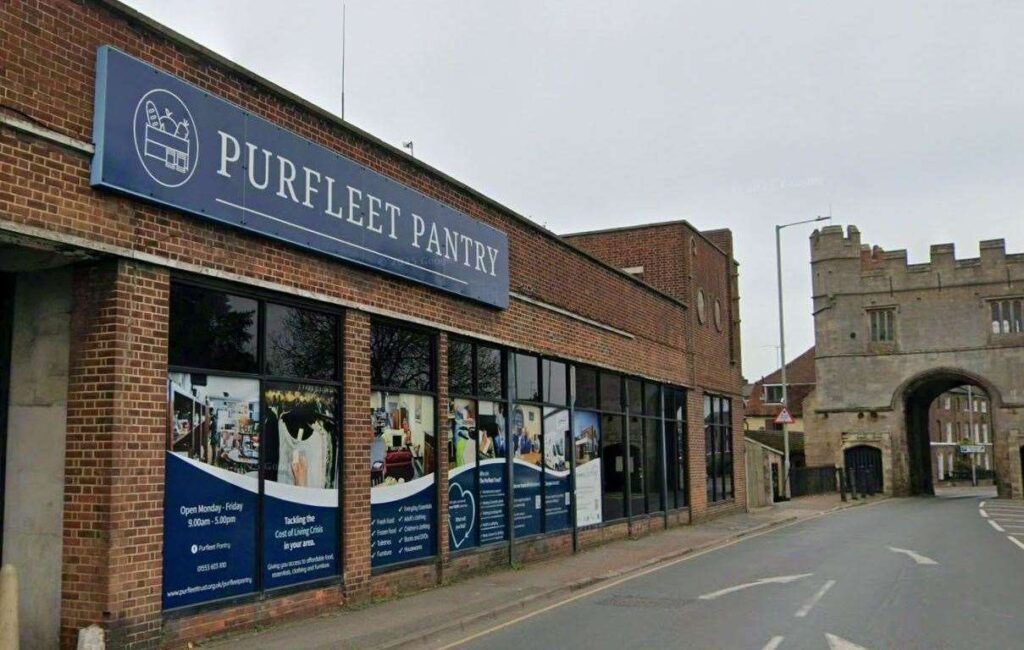It is a widespread belief that healthier food is now more expensive and less available to those on lower incomes than ever before – but is that really true?
A common topic of debate is whether or not it is cheaper and easier for families to toss a frozen pizza in the oven than prepare a nutrient-rich home-cooked meal.
We spoke to a number of individuals and organisations to get their views.
SO WHAT DO THE STATISTICS SAY?
The Food Foundation, a UK-wide charity campaigning for affordable and accessible healthy products, published its annual ‘broken plate report’ at the beginning of this year.
It found that healthier foods are more than twice as expensive per calorie as less healthy foods.
It also revealed that those in the most deprived 20% of the population would need to spend around 45% of their disposable income to be able to afford the Government’s recommended healthy diet – and for those with children, that figure rises to 70%.
WHAT IS CONSIDERED A HEALTHY DIET?
The Government launched its Eatwell Guide back in 2016 as the nation’s official healthy eating model.
It shows people how they can achieve a balanced diet over the course of a day or a week by:
• Eating five portions of a variety of fruit and vegetables per day.
• Basing meals on potatoes, bread, rice, pasta or other starchy carbohydrates (wholegrain and high fibre where possible).
• Eating beans, pulses, fish, eggs, meat and other protein foods (aiming for two portions of fish per week and cutting down on red and processed meat like bacon, ham and sausages).
• Having some dairy or dairy alternatives such as soya drinks and yoghurts (aiming for lower-fat and lower-sugar products).
• Choosing unsaturated oils or spreads and eating them in small amounts.
However, The Food Foundation believes that sticking to this is not achievable for families anymore due to the rising costs.
Anna Taylor, the executive director of the charity, said: “There is a tragic imbalance in the UK between the food that is marketed, available and affordable, and foods that are healthy and sustainable.
“Often, it is the most vulnerable children in our society who suffer the worst consequences of this.
“Not only can lack of nutrition lead to serious health conditions, it can also lead to children being unable to concentrate in school and have a lasting negative impact on mental health, entrenching inequalities from a young age.”
WHAT ELSE STANDS BETWEEN PEOPLE AND A HEALTHY DIET?
Many say they simply do not have the time to eat healthily.
Between busy schedules and demanding jobs, after a long day, the last thing they want to do is stand in the kitchen and prepare a meal – especially if they are single parents.
Others believe cooking skills have been lost over time, as it is easier to sit back and indulge in conveniences such as processed goods.
Cllr Jo Rust, the cabinet member for people and communities at West Norfolk Council, said: “Years ago, people watched their parents and grandparents prepare food from scratch, and so that knowledge was passed on.
“When processed food became a staple, those skills became less relevant and were gradually lost.
“I find cooking from scratch therapeutic, but it’s often time-consuming, and many stretched and time-poor families don’t have that time or headspace.”
BUT ARE THERE WAYS AROUND IT?
Olivia Jabourian, the project manager at the North Lynn Food Hub, told the Lynn News it is actually very possible to make a number of nutritious meals quickly and on a budget – but people are often blinded by fancy cooking shows and supermarket profit agendas.
“When you switch on the TV, you get all these professional chefs showing you all these complicated recipes with expensive ingredients, because they have to fill an hour slot, so people get put off,” she said.
“But you can cook something just as nice in much less time and for much less money than that.”
Ms Jabourian says that these days, there are air fryers, slow cookers and other gadgets which allow people to prepare something in next to no time.
She added that many get confused in thinking that healthy food means exclusively organic food, but actually, this is not the case at all.
Meals can be prepared using frozen vegetables and tinned goods, which are all stocked at the North Lynn hub.
“All the advertising that goes into organic foods is to the advantage of big supermarkets, who want to sell you the more expensive stuff,” Ms Jabourian added.
“I think we can eat healthy if we put our minds to it.”
The Purfleet Pantry, another similar facility located at the Southgates Roundabout in Lynn, agrees that eating healthy does not have to be expensive.
Manager Karen Mason said: “We very rarely have a piece of fruit or veg that is dearer than 50p – the majority of our fruit and veg we sell at 30p, and sometimes it is even free of charge on a Thursday.
“So you can make healthy food options using us.”
She agreed that it is not so much the price that puts people off, but the time involved.
“Lots of people want convenience,” she said.
“It’s not the fact that you can’t get hold of reasonably priced fruit and veg to make things, but it’s the fact that it takes longer, and families are busy.”
Both the North Lynn Food Hub and the Purfleet Pantry work through memberships where people pay £3 a year to access the organisations’ heavily reduced prices and free goods.
SO WHAT HEALTHY MEALS CAN BE MADE ON A BUDGET?
Ms Jabourian said that recently she bought a bag of around 14 frozen chicken drumsticks, boiled it with a number of spices, made rice in the chicken stock, and added some yoghurt and salad on the side.
“That’s a healthy meal,” she said.
“It didn’t even cost me £5 and it fed my brother, his wife, his son, his mother-in-law and my niece.”
Ms Mason from the Purfleet Pantry added that salmon is also very quick and easy to make.
“If I were to do it at home, I would cook it in paper in the oven because it seals in all the juices, but you can do it in a steamer,” she said.
“You can serve that with salad or rice, green beans or peas.”
WHERE CAN PEOPLE LEARN TO COOK HEALTHY FOOD?
A number of resources are available in Lynn, aimed at educating the masses.
The borough council’s LILY programme hosts 12 weeks of free Food For Thought cooking sessions for the public to attend.
Although this year’s events have finished, all of the recipes are available on the website here.
The Purfleet Pantry also puts on workshops for those interested in improving their culinary skills, which it advertises on its Facebook page here.
Alternatively, there are cookbooks and a number of meal ideas on the internet to try before once again reaching for that frozen pizza at dinner time.






